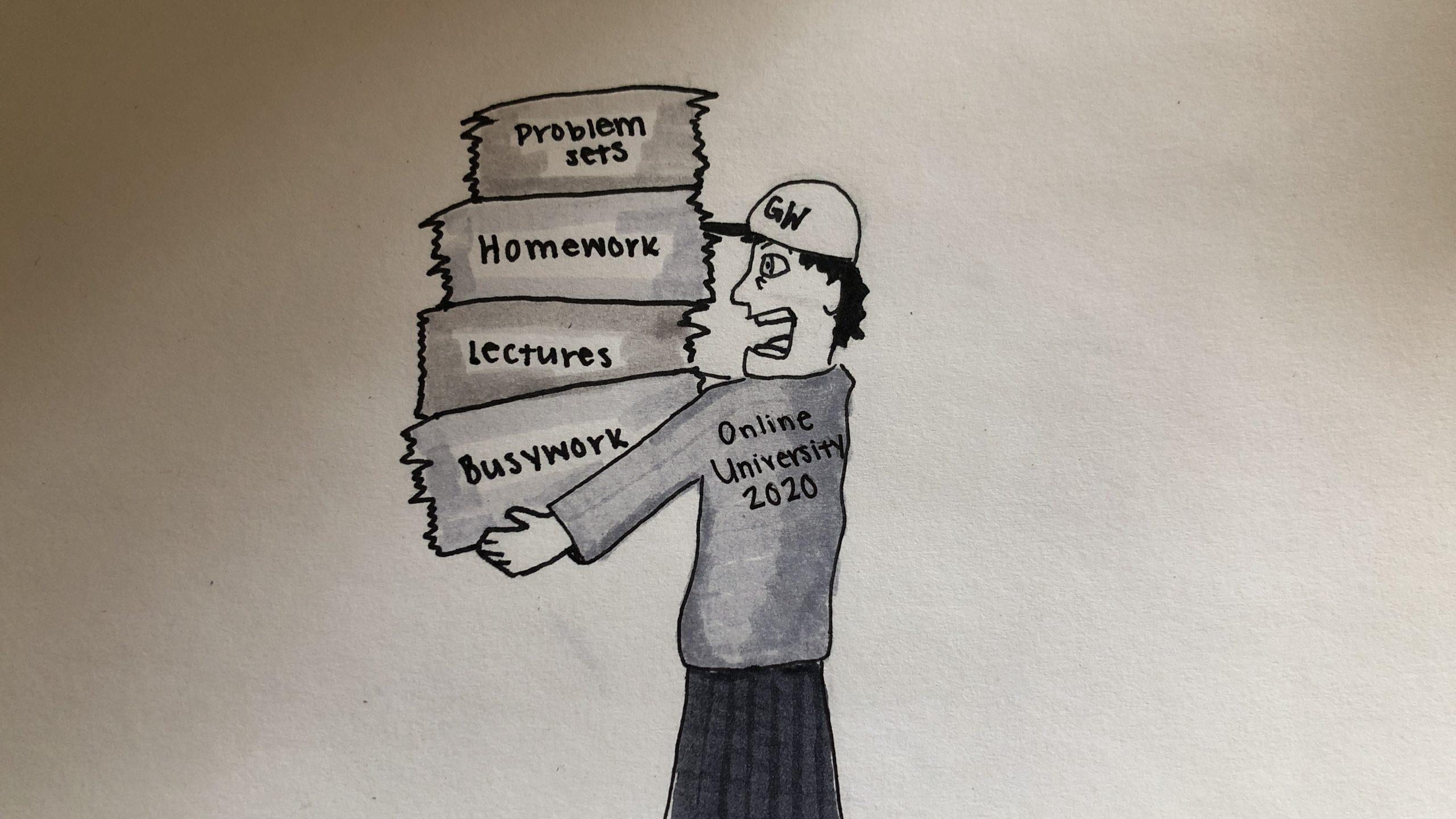There has not been a more challenging time to focus on college studies in the United States since the Vietnam War, where students had to learn despite widespread protests about the war and amid the civil rights movement. Now, we’re facing four major crises: political, economic, social and environmental. Our country and its college students are beating back authoritarianism, dealing with extreme unemployment levels, combating racial injustices and fleeing from wildfires and hurricanes.
Completing dozens of calculus problems or reading hundreds of textbook pages feels superfluous to the happenings in the world around us, and professors should lighten the academic burden accordingly. Some ways to reduce the workload are straightforward, like reducing the amount of out-of-class busywork. Other ways, like keeping the syllabus updated so the class has a solid flow, require more work in the short-term for professors, but in the long run students will remain more engaged. To put it simply, less is more this semester.

Hannah Thacker | Opinions Editor
Although a petition to reinstate the Pass/No Pass policy is in the works, there is no guarantee that administrators will do the bare minimum to support us in our distance-learning environment. As such, students have no recourse but to turn to professors and ask for leniency. We’re facing technical issues and can’t replicate the in-person experience quite as well. My professors this semester have shown kindness and compassion as students work through difficulties, and my classmates have reciprocated when technological challenges arise for professors.
It is time for professors to extend that same compassion beyond the classroom. Not only have many students expressed difficulties accessing materials on Blackboard, but some have struggled as their classes require more than 100 pages of reading a week. It’s too much. There is no way to expect a student to retain the details of 500-plus pages in all their classes, let alone regurgitate it on papers and other assessments. Even in the best of times this expectation is questionable – in the time of COVID-19 and remote learning, it is laughable.
While there should be less breadth of work, this should be replaced by more in-depth discussion. The courses I have enjoyed and learned the most so far this semester have all centered around class or group discussions. Often the big assignment for class that week was 40 to 50 pages of reading – plenty more manageable than 100 – and the class benefited from the lighter course load. Plus, given the increased likelihood students will be able to complete their work, students may be more willing to contribute to class discussions if they feel better prepared.
As smaller assignments decrease, the length of assessments must too. Professors need to continue to offer expected page counts on papers, but they must understand that students are dealing with a variety of personal issues, from poor WiFi to a lack of a quiet work space to ailing family members. Not to mention some students could face distractions from other jobs or younger siblings. In other words, if a student turns in six pages on a minimum seven-page assignment, understand that was the best work they could produce, and an additional page likely would have been filled with fluff. Extending in-class compassion to larger assignments will go a long way toward keeping everyone that much more focused on their studies and sane.
As students across the world continue to adjust to remote working and learning, college communities like GW are no exception. We must continue to work together to get through this, and reducing the academic stress both on students and faculty will help to ensure everyone’s wellbeing. We are all human, and we must be able to rely on our communities to support us in this frightening, difficult time.
Matthew Zachary, a senior majoring in Latin American studies, is a columnist.

